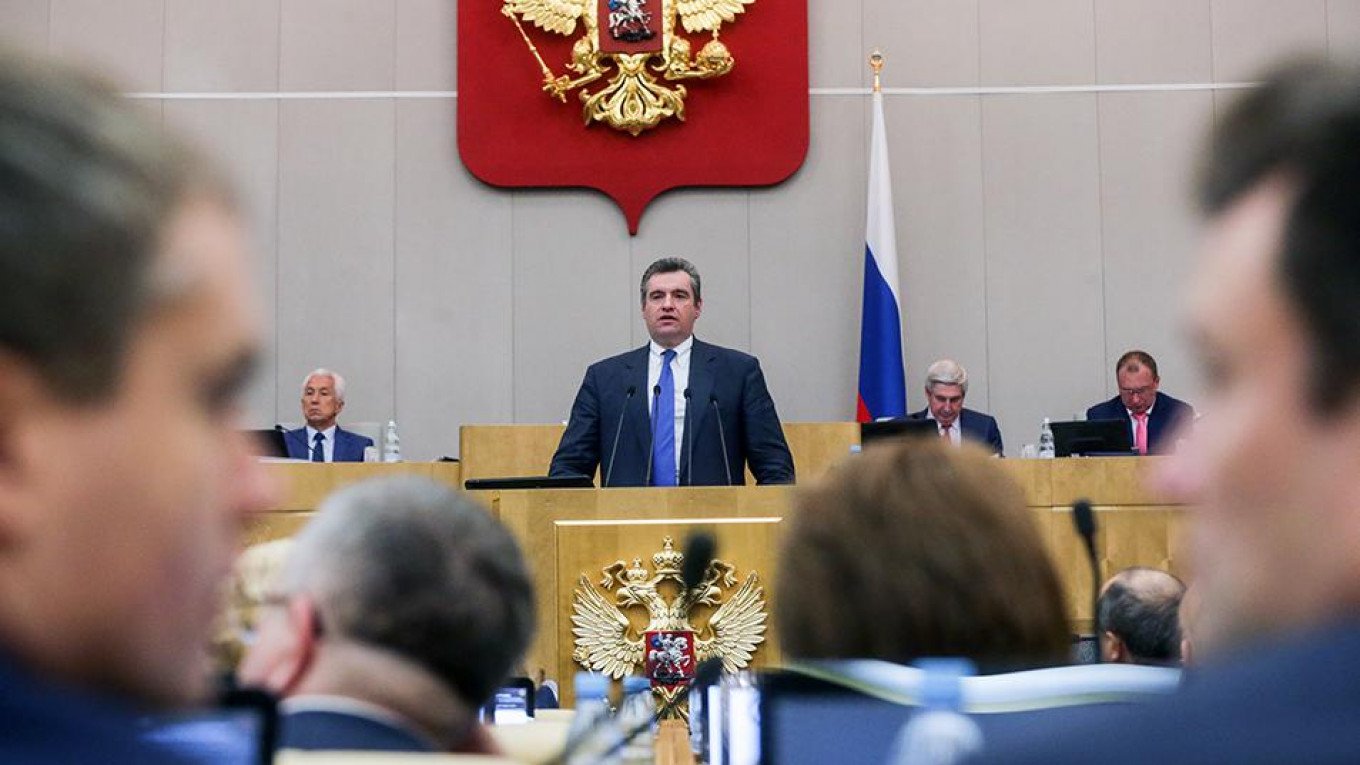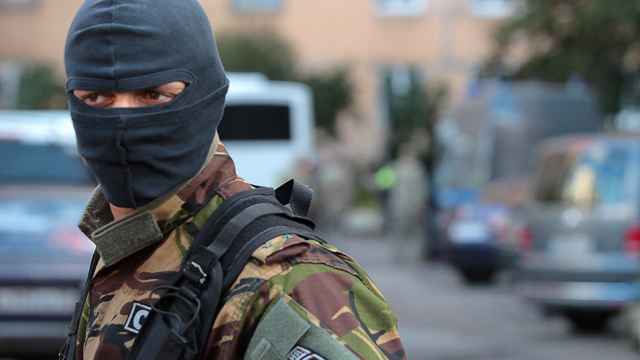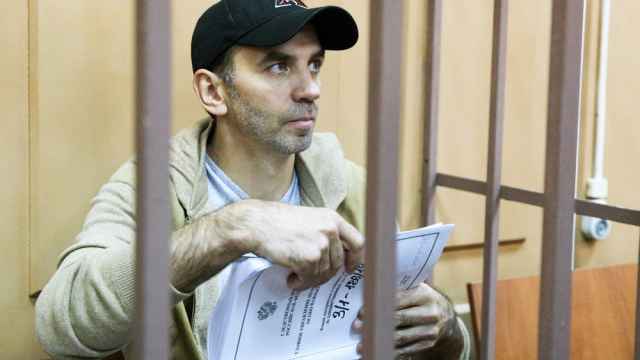The Russian lawmaker at the center of the country’s biggest sexual harassment scandal, speaking candidly for the first time in an interview with Snob magazine, said there is an ongoing conspiracy against him, including the threat that the BBC will release an audio tape allegedly showing him harassing one of its journalists.
State Duma deputy Leonid Slutsky was publicly accused by three journalists this year of groping and lewd behavior, including a journalist from the BBC, leading some news outlets to boycott the lawmaker and the lower house of the parliament. An ethics commission dismissed the claims in March, despite the British broadcaster's claim there is an audiotape of the incident.
“In my case harassment was a discrediting tactic. They tried to test in Russia a method that proved effective in America. It didn’t work,” Slutsky said in an interview with Russia’s Snob magazine Wednesday.
The lawmaker said he was targeted because the alleged harasser “has to be someone fairly unconventional, flamboyant [...] who gets women’s attention and gives it to them.”
Slutsky recounted a case where he was alleged to have groped BBC Russia correspondent Farida Rustamova last year, contending that he “had no physical contact with this lady’s groin or other body parts.” BBC Russia said it possesses an audio recording that details the encounter which it has yet to release.
Slutsky said he suspects the unnamed “mastermind” of the campaign to release an alleged audiotape, whose existence he does not dispute, to renew the wave of accusations. “Perhaps it was compiled, spliced from various episodes [...] When interest is waning, you add more kindling.”
Acknowledging that he may have kissed Rustamova on the cheek, Slutsky said an age gap may have caused her to misconstrue his friendliness as sexual harassment. “In my view and in the view of my generation, it’s a token of affection for someone who didn’t just come to get an interview, but commands respect.”
Slutsky has maintained that he was the target of a smear campaign, offering as evidence a story about an unnamed acquaintance who had at one point turned down an $1.5 million offer to falsely accuse him of rape.
He likened his case to the wider geopolitical standoff between Russia and the West, comparing the accusations he faced to those levelled against Russia in recent years, including accusations of interfering in the 2016 U.S. election and poisoning a former spy in Britain earlier this year. “They say ‘you killed, attacked, poisoned the Skripals, meddled in the American elections, touched a groin,’ etc. No real facts or arguments, only emotions!”
The alleged tape of the harassment may still be released. But Slutsky said he felt confident that he was immune from its effects, and the he had been a “vaccine” against the “idiotic and contagious virus” of the global #MeToo movement that barely registered in Russia.
“In a sense, I stopped this wave at the cost of my reputation,” he told Snob.
A Message from The Moscow Times:
Dear readers,
We are facing unprecedented challenges. Russia's Prosecutor General's Office has designated The Moscow Times as an "undesirable" organization, criminalizing our work and putting our staff at risk of prosecution. This follows our earlier unjust labeling as a "foreign agent."
These actions are direct attempts to silence independent journalism in Russia. The authorities claim our work "discredits the decisions of the Russian leadership." We see things differently: we strive to provide accurate, unbiased reporting on Russia.
We, the journalists of The Moscow Times, refuse to be silenced. But to continue our work, we need your help.
Your support, no matter how small, makes a world of difference. If you can, please support us monthly starting from just $2. It's quick to set up, and every contribution makes a significant impact.
By supporting The Moscow Times, you're defending open, independent journalism in the face of repression. Thank you for standing with us.
Remind me later.






